
Phewa Lake: Pokhara's Serene Jewel
Phewa Lake, nestled in the heart of Pokhara, Nepal, offers a tranquil escape from the hustle and bustle of city life. This enchanting freshwater lake, surrounded by lush green hills and the majestic Annapurna range, provides a scenic backdrop that is a feast for the eyes and a balm for the soul. The lake's mirror-like surface reflects the towering peaks of the Himalayas, creating a breathtaking panorama that is perfect for photography enthusiasts and nature lovers alike. Visitors can enjoy a leisurely boat ride on the lake, with the option to paddle themselves or hire a boatman. The calm waters are ideal for a relaxing cruise, allowing tourists to soak in the serene beauty of the surroundings. In the middle of the lake lies the Tal Barahi Temple, a two-story pagoda dedicated to the Hindu goddess Barahi. This temple is a popular pilgrimage site and offers a unique cultural experience for visitors. The lakeside area is dotted with charming cafes, restaurants, and shops, providing ample opportunities for dining and shopping. The vibrant local market offers a variety of handicrafts, souvenirs, and traditional garments, making it a great place to pick up a memento of your visit. For the more adventurous, there are numerous trekking and hiking trails that start from the vicinity of Phewa Lake, leading to stunning viewpoints and hidden gems in the surrounding hills.
Local tips in Phewa Lake
- Boat rides are best enjoyed early in the morning or late afternoon to avoid the midday heat.
- Don’t miss visiting the Tal Barahi Temple in the middle of the lake for a unique cultural experience.
- Bring a camera to capture the stunning reflections of the Annapurna range on the lake.
- Explore the local market for unique handicrafts and souvenirs.
- Wear comfortable walking shoes if you plan to explore the surrounding hiking trails.
Phewa Lake: Pokhara's Serene Jewel
Phewa Lake, nestled in the heart of Pokhara, Nepal, offers a tranquil escape from the hustle and bustle of city life. This enchanting freshwater lake, surrounded by lush green hills and the majestic Annapurna range, provides a scenic backdrop that is a feast for the eyes and a balm for the soul. The lake's mirror-like surface reflects the towering peaks of the Himalayas, creating a breathtaking panorama that is perfect for photography enthusiasts and nature lovers alike. Visitors can enjoy a leisurely boat ride on the lake, with the option to paddle themselves or hire a boatman. The calm waters are ideal for a relaxing cruise, allowing tourists to soak in the serene beauty of the surroundings. In the middle of the lake lies the Tal Barahi Temple, a two-story pagoda dedicated to the Hindu goddess Barahi. This temple is a popular pilgrimage site and offers a unique cultural experience for visitors. The lakeside area is dotted with charming cafes, restaurants, and shops, providing ample opportunities for dining and shopping. The vibrant local market offers a variety of handicrafts, souvenirs, and traditional garments, making it a great place to pick up a memento of your visit. For the more adventurous, there are numerous trekking and hiking trails that start from the vicinity of Phewa Lake, leading to stunning viewpoints and hidden gems in the surrounding hills.
Iconic landmarks you can’t miss
Pokhara Lakeside
Immerse yourself in the breathtaking beauty and vibrant culture of Pokhara Lakeside, a must-visit destination in Nepal for every traveler.
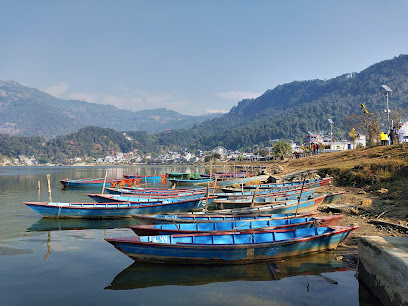
World Peace Pagoda
Discover tranquility at the World Peace Pagoda in Pokhara, a stunning Buddhist stupa offering breathtaking views and a serene spiritual experience.
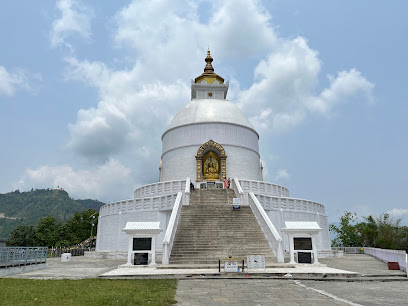
Tal Barahi Temple, Pokhara
Discover the serene beauty of Tal Barahi Temple, a sacred site on Phewa Lake offering breathtaking views and a glimpse into Nepal's rich cultural heritage.
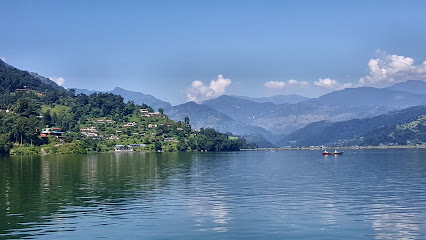
Gupteshwor Mahadev Cave
Discover the enchanting Gupteshwor Mahadev Cave in Pokhara, a sacred site filled with stunning natural formations and rich spiritual heritage.
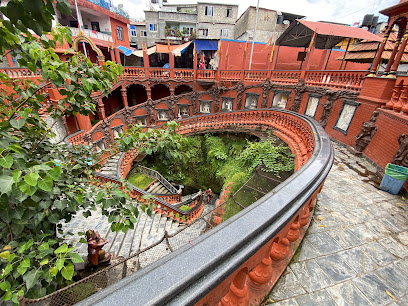
Phewa Lake View Point
Discover panoramic views and serene beauty at Phewa Lake View Point in Pokhara, a must-see for every traveler exploring Nepal's natural wonders.
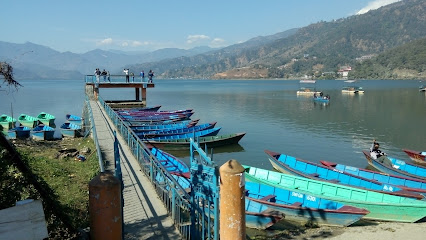
Ratna Mandir
Experience the spiritual and historical essence of Nepal at Ratna Mandir, a captivating landmark in the scenic city of Pokhara.
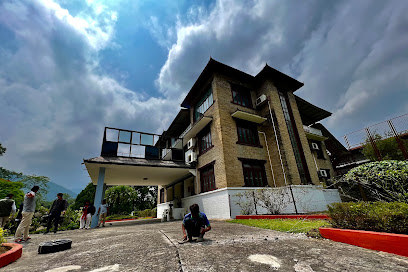
Phewa Lake
Experience the breathtaking beauty and tranquility of Phewa Lake in Pokhara, where adventure meets serenity amidst majestic mountains.
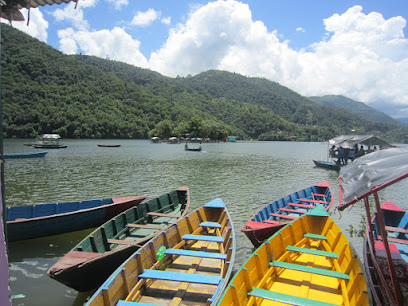
Aarti at phewa lake
Discover the tranquility of Aarti at Phewa Lake, where spirituality and stunning natural beauty converge in Pokhara, Nepal.
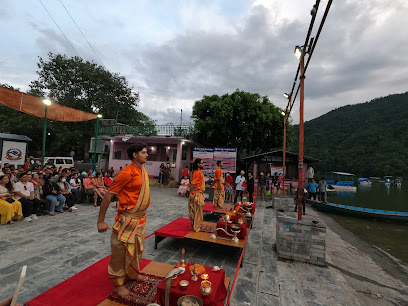
Fewa LakeSide Walkway
Discover tranquility and breathtaking beauty at Fewa LakeSide Walkway in Pokhara, Nepal, a must-visit destination for serene lakeside experiences.
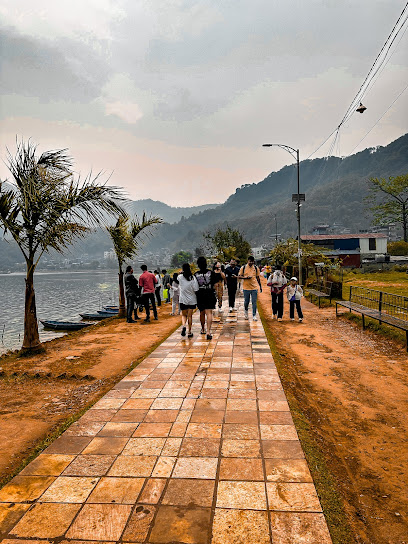
Phewa lake View Point
Explore the mesmerizing Phewa Lake View Point in Pokhara, where stunning mountain vistas and serene lake views create an unforgettable experience in Nepal.
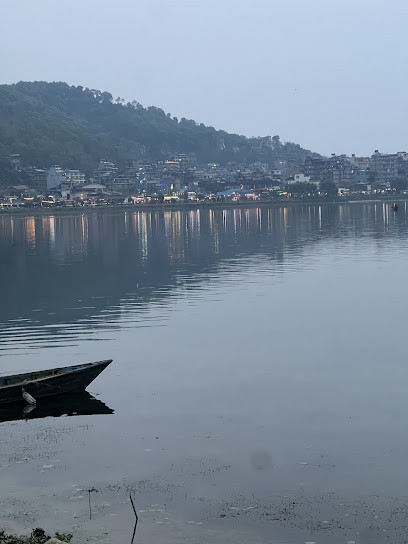
Unmissable attractions to see
Pokhara Disneyland
Experience adventure and enchantment at Pokhara Disneyland, the ultimate amusement park in the heart of Nepal's stunning lakeside city.
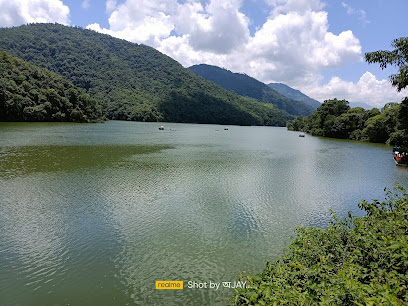
Basundhara Park
Discover the tranquil beauty of Basundhara Park in Pokhara, a perfect retreat for nature lovers and sunset seekers.
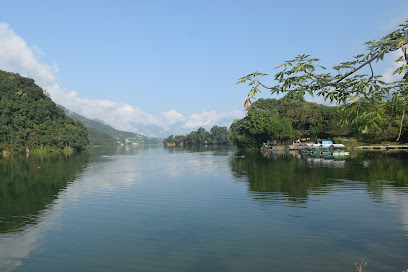
Pokhara Nepal
Explore the natural beauty and adventure offerings of Pokhara, Nepal, home to serene lakes, majestic mountains, and rich cultural heritage.
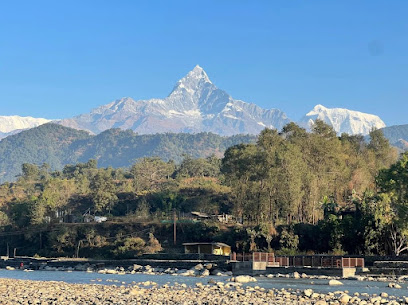
Essential places to dine
Caffe Concerto
Experience authentic Italian cuisine at Caffe Concerto in Pokhara - where every dish tells a story amidst breathtaking views.
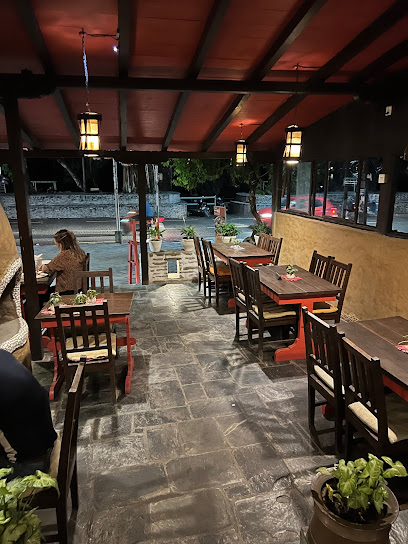
Jetho Budho Bhansa Ghar
Experience authentic Nepali cuisine at Jetho Budho Bhansa Ghar in Pokhara - where tradition meets taste.
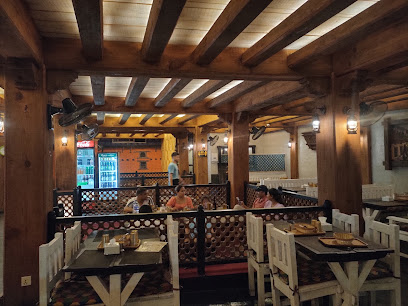
LW BAR AND RESTAURANT (little windows)
Experience diverse flavors at LW Bar and Restaurant in Pokhara—where health-conscious cuisine meets stunning lakeside views.
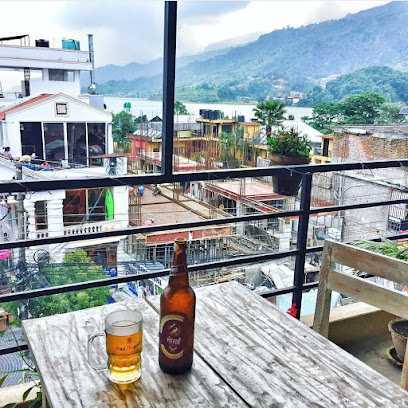
Feel Good Restro and Bar
Experience the best of Asian cuisine at Feel Good Restro and Bar in Pokhara—where flavor meets hospitality in a vibrant setting.
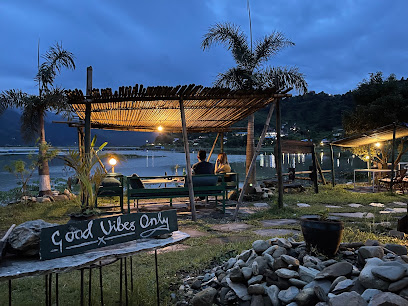
Tourist Road Bistro (Good Food with Great Ambience)
Discover the culinary charm of Tourist Road Bistro in Pokhara - where great food meets stunning lakeside views.
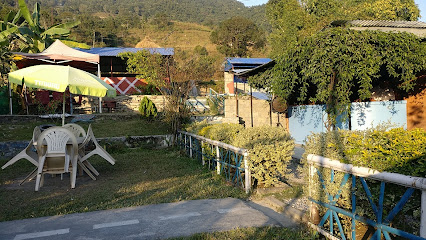
Restaurant Once Upon A Time
Experience authentic Nepalese flavors at Restaurant Once Upon A Time in Pokhara, where every meal tells a story.
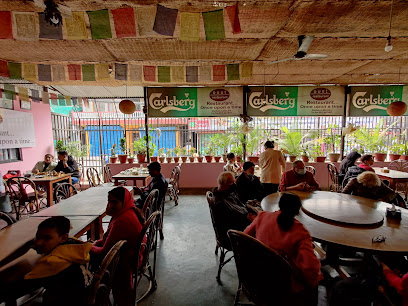
Sharma's unique Restaurant
Experience the best of local and international cuisine at Sharma's Unique Restaurant in scenic Pokhara.
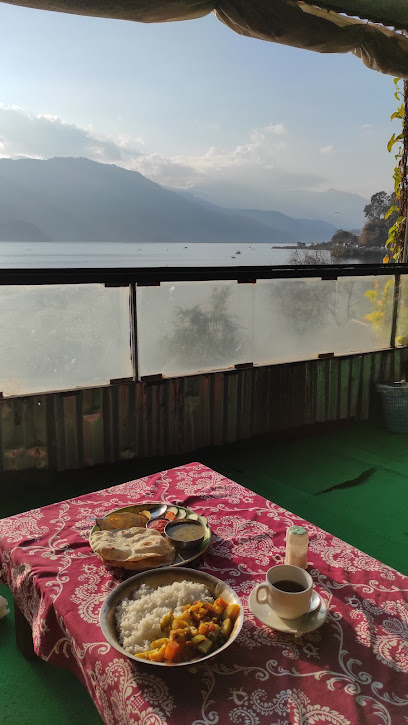
New Fewa Restaurant
Experience authentic Nepali flavors amidst breathtaking views at New Fewa Restaurant in Pokhara's scenic Lakeside area.
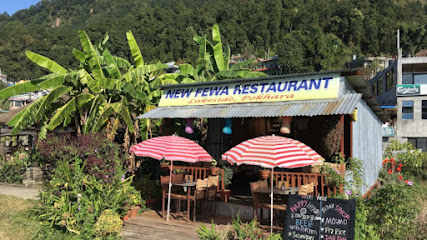
Fewa Fish Restaurant and Sekuwa Corner
Discover authentic Nepalese cuisine at Fewa Fish Restaurant and Sekuwa Corner in Pokhara – where fresh flavors meet stunning views.
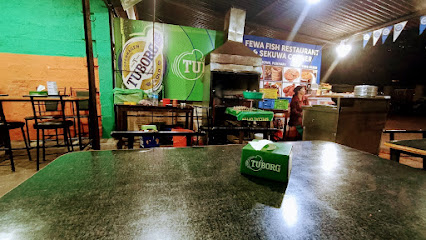
Green Beach Pokhara, Restaurant and Bar (BBQ)
Experience the best barbecue in Pokhara at Green Beach - where delicious flavors meet stunning lakeside views.
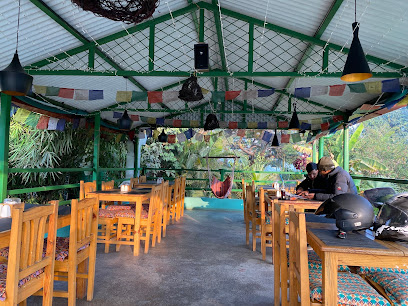
Markets, malls and hidden boutiques
Fishtail Book Shop & Souvenir Store
Discover the charm of Fishtail Book Shop & Souvenir Store in Pokhara: a perfect blend of literature, local crafts, and cultural treasures.
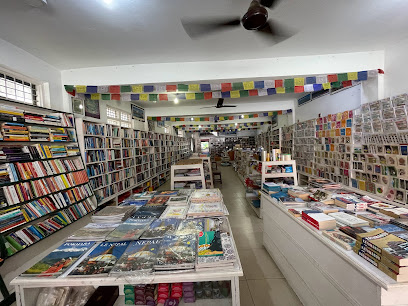
Tibetan Mini Market
Explore the Tibetan Mini Market in Pokhara for unique handcrafted goods and an immersive cultural experience that brings Tibetan traditions to life.
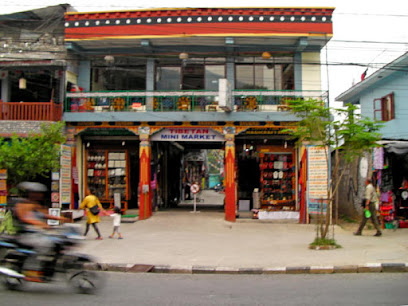
Chetana Women's Skill Developement
Explore Chetana Women's Skill Development in Pokhara for unique handicrafts that empower local women and celebrate Nepal's rich cultural heritage.
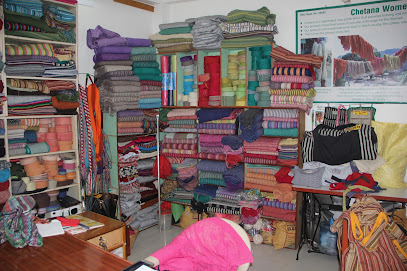
Fewa Trekking Shop
Explore the best trekking gear at Fewa Trekking Shop in Pokhara, your one-stop destination for adventure apparel and accessories.
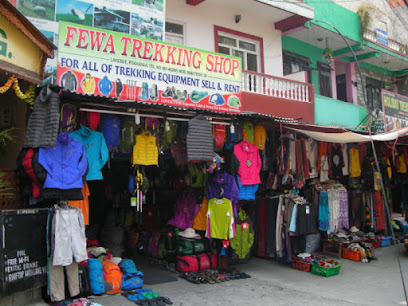
Fewa Book Shop
Explore Fewa Book Shop in Pokhara for a serene escape into literature amidst stunning lakeside views.
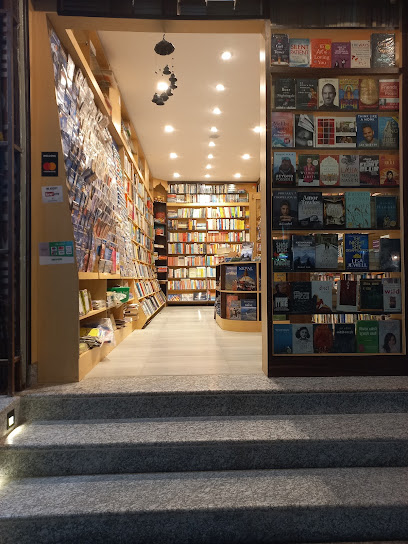
Pokhara Tea and Gift Shop
Explore the delightful Pokhara Tea and Gift Shop for authentic Nepali teas and unique local souvenirs in the heart of Nepal's scenic city.
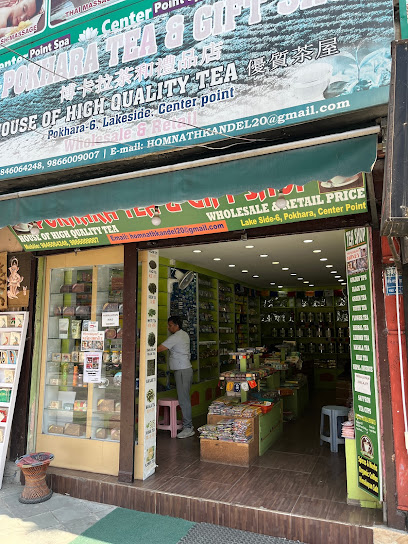
Amala's Tibetan Gift Corner
Explore authentic Tibetan crafts at Amala's Tibetan Gift Corner in Pokhara, a must-visit for unique and meaningful souvenirs.
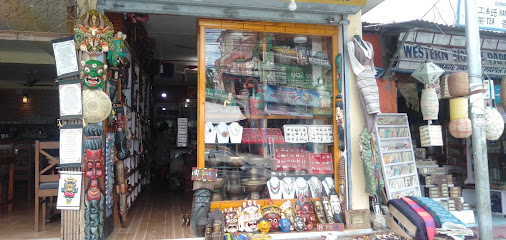
Thaman Art Galery
Discover the vibrant artistry of Nepal at Thaman Art Gallery in Pokhara, where local crafts and culture come to life in stunning creations.
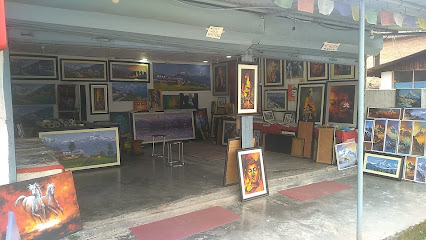
New Grand Art Inn Pashmina Store
Explore the exquisite craftsmanship of authentic Pashmina shawls and traditional Nepalese handicrafts at New Grand Art Inn Pashmina Store in Pokhara.
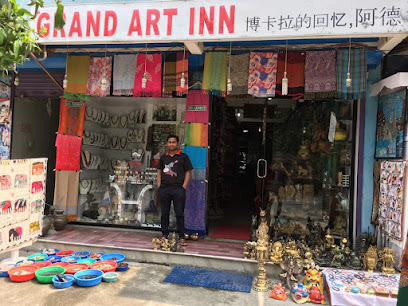
Nepali Creation Souvenirs Shop
Discover handcrafted treasures that celebrate Nepalese culture at Nepali Creation Souvenirs Shop in Pokhara's vibrant Lakeside area.
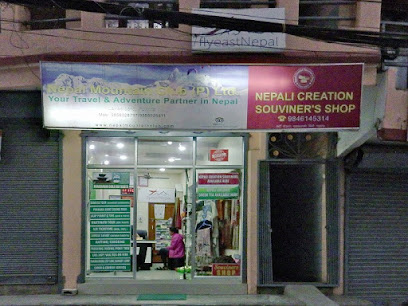
Essential bars & hidden hideouts
Busy Bee Cafe
Discover the lively spirit of Pokhara at Busy Bee Cafe, where delicious food, live music, and a vibrant atmosphere await.
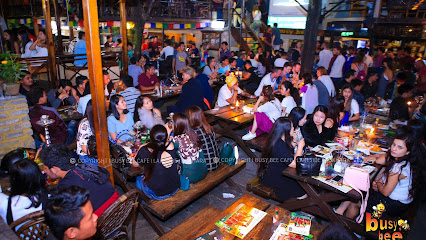
Krazy Gecko
Experience the vibrant nightlife of Pokhara at Krazy Gecko, where delicious food and refreshing drinks meet stunning views and great company.
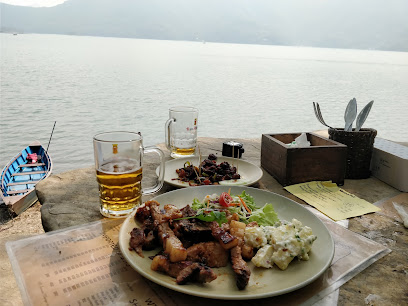
Irish Pub
Discover the authentic taste of Nepal and Ireland at the lively Irish Pub in Pokhara, where great food meets vibrant nightlife.
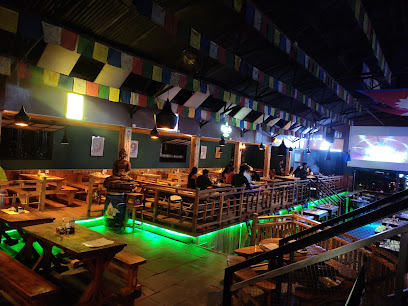
Bamboo Bar Cafe
Experience the perfect blend of relaxation and excitement at Bamboo Bar Cafe in Pokhara, where exquisite cocktails meet stunning lakeside views.
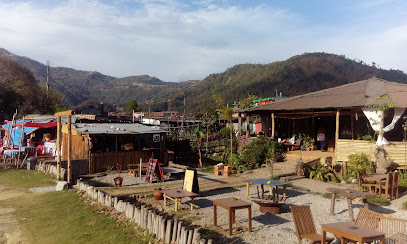
The Boss Restaurant
Savor the flavors of barbecue and steak while enjoying stunning lakeside views at The Boss Restaurant in Pokhara.
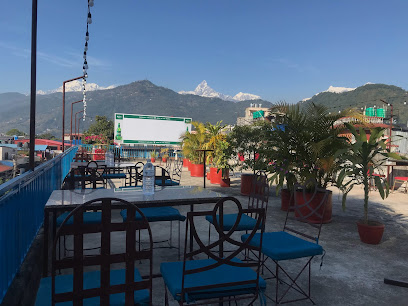
Longest Bar
Experience the vibrant nightlife at the Longest Bar in Pokhara, where great drinks and an inviting atmosphere await every traveler.
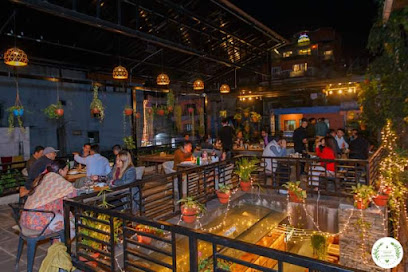
Fewa Paradise Restaurant
Experience the best of barbecue and breathtaking views at Fewa Paradise Restaurant in Pokhara, Nepal.
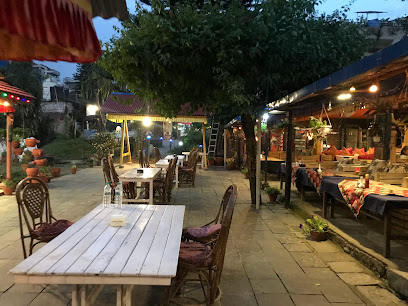
Jay's Bar
Discover the lively charm of Jay's Bar in Pokhara, where great drinks and friendly vibes await every traveler.
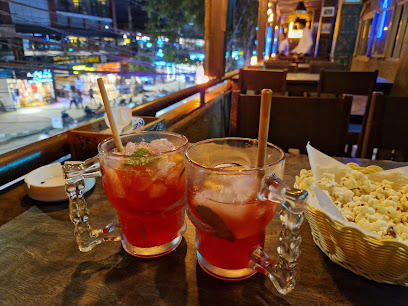
Old lailas Bar
Discover Old Lailas Bar in Pokhara, a vibrant spot for delicious Nepalese cuisine, refreshing cocktails, and exhilarating live music nights.
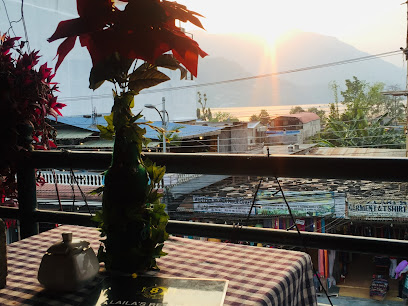
Tonic Lounge Bar
Experience the vibrant nightlife of Pokhara at Tonic Lounge Bar, where great drinks and stunning views come together in a relaxing atmosphere.
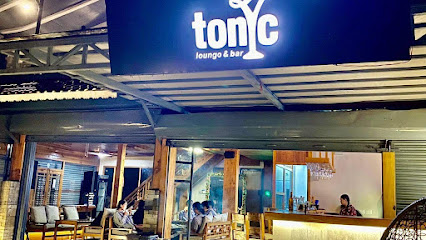
Local Phrases
-
- Helloनमस्ते
[namaste] - Goodbyeछोड्दय
[chhoddai] - Yesहो
[ho] - Noहैन
[haina] - Please/You're welcomeकृपया/स्वागत छ
[krupaya/swagat cha] - Thank youधन्यवाद
[dhanyabad] - Excuse me/Sorryक्षमा गर्नुहोस्
[kshama garnuhos] - How are you?तपाईंलाई कस्तो छ?
[tapailai kasto cha?] - Fine. And you?राम्रो छ। र तपाईंलाई?
[ramro cha. ra tapailai?] - Do you speak English?तिमी अंग्रेजी बोल्छौ?
[timi angreji bolchhau?] - I don't understandमैले सम्झिन
[maile samjhin]
- Helloनमस्ते
-
- I'd like to see the menu, pleaseकृपया मेनु हेर्न चाहन्छु
[krupaya menu hern chahanchu] - I don't eat meatम भांसामा खाँदिन
[ma bhansama khadin] - Cheers!चियर्स!
[cheers!] - I would like to pay, pleaseकृपया चुक्ती गर्न चाहन्छु
[krupaya chukti garn chahanchu]
- I'd like to see the menu, pleaseकृपया मेनु हेर्न चाहन्छु
-
- Help!मदत गर!
[madat gar!] - Go away!दूर जाओ!
[dur jao!] - Call the Police!प्रहरीलाई बोलाऊ!
[praharilai bolaau!] - Call a doctor!डाक्टरलाई बोलाऊ!
[daktarlai bolaau!] - I'm lostम गुमाएको छु
[ma gumaeko chu] - I'm illम बिरामी छु
[ma birami chu]
- Help!मदत गर!
-
- I'd like to buy...मलाई ... खरीद्न चाहिन्छ
[malai ... kharidn chahinchha] - I'm just lookingम सिर्जना गरिरहेको छु
[ma sirjana gariraheko chu] - How much is it?यो कति हो?
[yo kati ho?] - That's too expensiveयो धेरै महँगो छ
[yo dherai mahango cha] - Can you lower the price?के तपाईं मुल्य हाल्न सक्नुहुन्छ?
[ke tapailai mulya haln saknuhunchha?]
- I'd like to buy...मलाई ... खरीद्न चाहिन्छ
-
- What time is it?कति बजेको छ?
[kati bajeko cha?] - It's one o'clockयो एक बजेको छ
[yo ek bajeko cha] - Half past (10)दसबजेदेखि अर्धा
[dasbajedekhi ardha] - Morningबिहान
[bihan] - Afternoonदिउँसो
[diunso] - Eveningसाँझ
[saanjh] - Yesterdayहिजो
[hijo] - Todayआज
[aaj] - Tomorrowभोलि
[bholi] - 1एक
[ek] - 2दुई
[dui] - 3तीन
[tin] - 4चार
[char] - 5पाँच
[paanch] - 6छः
[chh] - 7सात
[saat] - 8आठ
[aath] - 9नौ
[nau] - 10दस
[das]
- What time is it?कति बजेको छ?
-
- Where's a/the...?... कहाँ छ?
[... kaha cha?] - What's the address?ठेगाना के हो?
[thegana ke ho?] - Can you show me (on the map)?के तपाईंले मलाई देखाउनुहुन्छ (नक्सामा)?
[ke tapailae malai dekhaunuhunchha (naksama)?] - When's the next (bus)?अर्को (बस) कहिले आउँछ?
[arko (bas) kahile aunhcha?] - A ticket (to ....)एक टिकट (... सम्म)
[ek tikat (... samma)]
- Where's a/the...?... कहाँ छ?
History of Phewa Lake
-
Phewa Lake, the second-largest lake in Nepal, was formed as a result of geological activities and human intervention over centuries. Historically, the lake has been a crucial natural resource for the inhabitants of Pokhara, providing water for agriculture and a source of fish for local communities. Its significance in the region dates back to ancient times, where it served both practical and spiritual purposes.
-
The Tal Barahi Temple, located on an island in the middle of Phewa Lake, is a vital cultural and religious site for the local people. Dedicated to the goddess Barahi, the temple dates back to the 18th century and attracts both pilgrims and tourists alike. The temple's architecture reflects the Newar style, showcasing the rich cultural heritage of Pokhara and the influence of the Newar community in the region.
-
The 1960s marked a turning point for Phewa Lake as tourism began to flourish in Pokhara. The picturesque scenery, combined with the serene lake and the backdrop of the Annapurna mountain range, attracted adventurers and trekkers. This led to the establishment of numerous hotels, restaurants, and recreational activities around the lake, transforming it into a hub for tourists and significantly impacting the local economy.
-
In recent decades, Phewa Lake has faced environmental challenges due to pollution and overdevelopment. Local organizations and the government have initiated conservation efforts to preserve the lake's ecosystem. These efforts include clean-up drives, awareness programs, and sustainable tourism practices aimed at maintaining the natural beauty and ecological balance of the area.
-
Phewa Lake serves as a central venue for various cultural festivals and community activities in Pokhara. Events like the 'Phewa Festival' celebrate local traditions, music, and dance, fostering community spirit and attracting visitors. The lake also hosts numerous boating activities, making it a gathering place for both locals and tourists to engage in leisure and cultural exchange.
Phewa Lake Essentials
-
Phewa Lake is centrally located in Pokhara and is easily accessible from various neighborhoods. From Lakeside, simply walk or take a short taxi ride to the lake's edge. If you're coming from the bus station, you can hire a taxi or use a local microbus to reach Lakeside. For those arriving from the airport, taxis are available, and it takes around 10-15 minutes to reach Phewa Lake.
-
The best way to explore Phewa Lake is on foot or by bicycle. You can rent bicycles from numerous shops in the area. For a unique experience, consider renting a kayak or a paddleboat to navigate the lake. Local taxis are available for longer distances, and some areas are accessible by local buses, though they may not run frequently.
-
Phewa Lake is generally safe for tourists, but standard precautions should be taken. Avoid walking alone at night, especially in less populated areas. Petty crimes like pickpocketing can occur in crowded spaces, so keep your belongings secure. While there are no specific high-crime areas, it's advisable to stay vigilant, especially near secluded spots around the lake.
-
In case of an emergency, dial 100 for police assistance or 102 for ambulance services. The local hospital, Western Regional Hospital, is equipped to handle emergencies. Ensure you have travel insurance that covers medical emergencies, and know the location of the nearest pharmacy for minor health issues.
-
Fashion: Do wear comfortable, modest clothing suitable for the climate. Don't wear revealing outfits, especially when visiting religious sites. Religion: Do respect local customs and practices. Always be mindful of local beliefs when taking photos. Public Transport: Do give up your seat for elderly passengers. Don't eat on public transport. Greetings: Do greet locals with a smile and 'Namaste.' Don't initiate a handshake with the opposite sex unless offered. Eating & Drinking: Do try local foods and accept invitations to eat. Don't refuse food or drink, as it may be seen as impolite.
-
To experience Phewa Lake like a local, hire a boat with a local guide who can share stories about the lake's significance and history. Visit the lakeside markets for fresh produce and handicrafts. Don't miss the sunrise or sunset views over the lake, which are breathtaking. Engage with local fishermen for a glimpse into their daily lives and practices.
Nearby Cities to Phewa Lake
-
Things To Do in Bandipur
-
Things To Do in Gorkha
-
Things To Do in Chitwan
-
Things To Do in Lumbini
-
Things To Do in Kathmandu
-
Things To Do in Patan
-
Things To Do in Bhaktapur
-
Things To Do in Nagarkot
-
Things To Do in Namche Bazaar
-
Things To Do in Patna
-
Things To Do in Lucknow
-
Things To Do in Varanasi
-
Things To Do in Kanpur
-
Things To Do in Darjeeling
-
Things To Do in Siliguri










